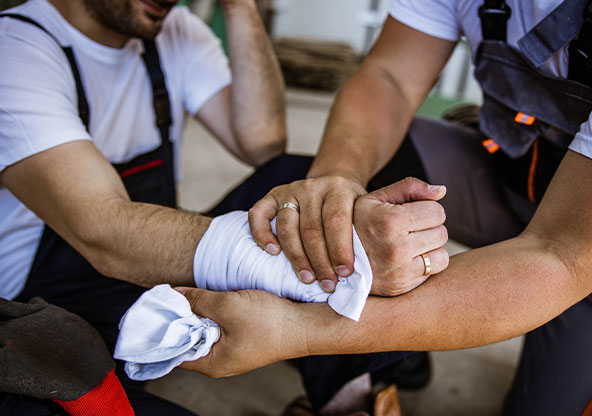Awareness Days
No results found

Stop The Bleed
In emergencies, the ability to stop severe bleeding cases significantly impacts saving lives when medical personnel is not on the scene. Whether it’s from an accident, assault, or natural disaster, time is of the essence. Knowing how to act can mean the difference between life and death. The following are some quick tips to help you STOP THE BLEED immediately.
Read the latest stories from CHRISTUS Health Experts
The Importance of Amputee Rehabilitation
CHRISTUS Ochsner Amputee Support and Networking Group provides amputees with a community of support, connection, and learning from one another about getting back to a normal life.
6 Clinicians Share Advice They Would Give Their Own Parents
Mother Seeks Answers for Rare Thyroid Condition
After Krystal Shermer and her three children were all diagnosed with a similar thyroid disorder, an endocrinologist suggested the family undergo genetic testing to find out if they had a form of genetic thyroid hormone resistance.
National Trisomy Awareness Month
Having a partial or extra chromosome can cause variable health problems.
Showing -- of -- results